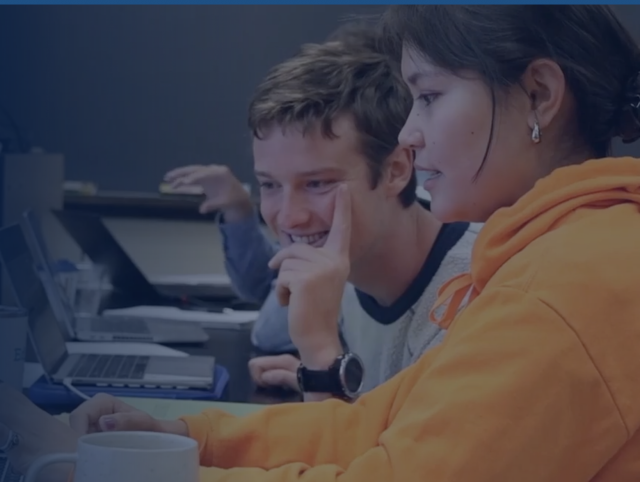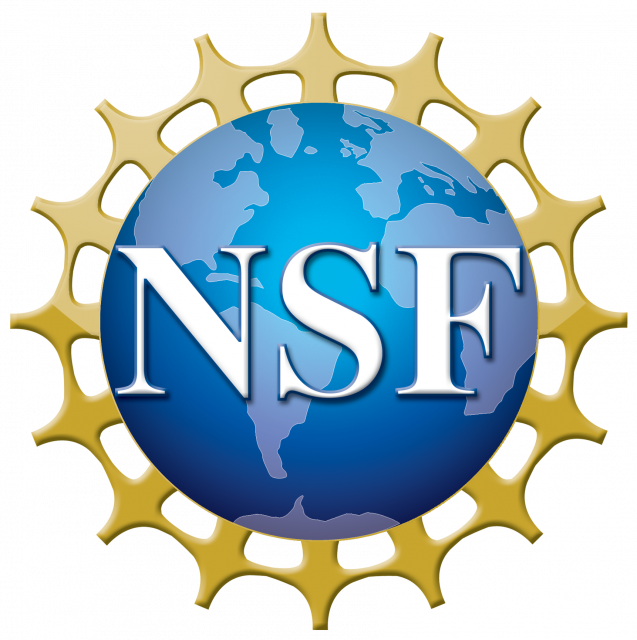Posts Tagged ‘Dear Colleague Letter’
NSF Announces Grants Related to OOI Education; Funding Opportunities Remain
The Ocean Sciences Division (OCE) of the National Science Foundation recently announced two awards related to Ocean Observatories Initiative (OOI) education: a renewal of the OOI Data Labs with Rutgers University and a microcredentialing program at the Marine Technology Society (MTS). The Data Labs project offers opportunities for OOI data users’ participation, and the MTS project will provide a widely available microcredential badging opportunity within a few years.
The OOI Data Labs involves representatives of Rutgers University, Stockton University, Hillsborough Community College, City University of New York Queens College, and the Science Education Resources Center at Carleton College, who will support curriculum development and student engagement using advanced technologies of the OOI. Under previous NSF funding, Ocean Data Labs successfully created and tested a lab manual that includes a collection of laboratory exercises using OOI data, as well as holding hands-on workshops where students and faculty learned how to use OOI data to answer ocean-related science questions.
The MTS award will be used to establish a microcredentialing program to address core competencies required for employment in the blue economy. Microcredentials are short, competency-based recognition that allows a learner to demonstrate mastery in specific areas. By 2025, MTS aims to offer six microcredentials, including a foundational microcredential in Underwater Gliders, Remotely Operated Vehicles (ROVs), Sonar, and Deck Operations. Rutgers University and Northwestern Michigan College will be developing the program along with MTS.
“NSF is pleased to support both these projects that promise expanded use of OOI data in the classroom and skills that will promote competency in some of the advanced technology used by OOI to collect data,” said Elizabeth Rom, Program Director of NSF’s Directorate of Geosciences. “We continue to seek innovative proposals that can serve to integrate OOI data more broadly into the learning and scientific community. We are seeking to support efforts that teach researchers or educators how to use OOI data and tools, that develop additional tools or instructional materials using OOI data or that serve to create communities of practice to use OOI data for multi-investigator, community-driven research.”
Rom provide details of three open funding opportunities:
- NSF 22-059 Dear Colleague Letter that encourages curriculum development proposals with the goal of improving the education of the next generation of ocean technicians, data scientists, ocean engineers, and ocean scientists.
- NSF 23-134 Dear Colleague Letter that encourages workshop proposals to develop connections between academic departments and ocean industries, ocean technicians, data scientists, ocean engineers, and ocean scientists.
- NSF 21-24 Dear Colleague Letter encourages research addressing Critical Aspects of Sustainability (CAS) related to climate change solutions. Proposals addressing cross-cutting topics could focus on technology and workforce development with an emphasis on behavioral and social aspects related to climate mitigation and adaptation. Potential relevant topics in red may include:
o Measurement and sensing innovations;
o Artificial Intelligence and other data analytics, computational and statistical modeling and simulation approaches that directly address climate change solutions;
o Understanding the role of human behavior in achieving mitigation strategies;
o Energy and climate education, capacity building, and broadening participation.
Article was posted on October 26, 2023.
Read MoreNSF Issues Dear Colleague Letter to Support Ocean Technical Workforce Education
The National Science Foundation (NSF) issued a “Dear Colleague Letter” (DCL) on March 14, 2022 seeking proposals for curriculum development and student engagement to support the expansion of the ocean technical workforce. Through the DCL, NSF hopes to expand the technical capacity of the U.S. workforce in high-technology fields through training programs that educate the next generation of ocean technicians, data scientists, ocean engineers, and ocean scientists.
Proposal topics of high priority include training in ocean instrumentation design, manufacturing and maintenance of marine-related hardware, and ocean data science and data analytics, with an emphasis on the inclusion of researchers, engineers and students from groups that are underrepresented in the marine science and mariner communities. Submissions are encouraged that target documented gaps in the U.S. technical workforce in marine instrumentation and manufacturing sectors, including those related to renewable energy, such as wave, tide, wind, and solar energy systems.
Full details can be found here. Proposers are encouraged to contact the program officers prior to submitting proposals or requests for supplemental funding. For questions about this DCL, please contact Elizabeth (Lisa) Rom – elrom@nsf.gov in the Division of Ocean Sciences, Jumoke Ladeji-Osias – jladejio@nsf.gov in the Directorate of Engineering, or V. Celeste Carter – vccarter@nsf.gov in the Division of Undergraduate Education.
Read More


